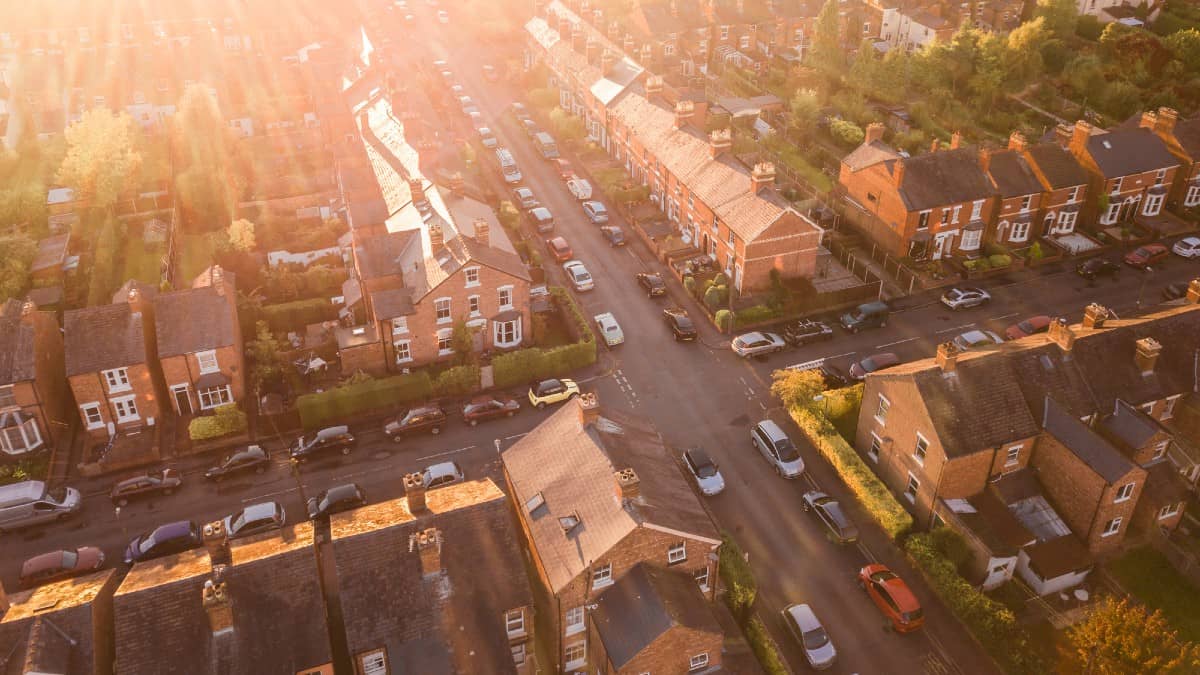Homebuyers in England rejoiced when the chancellor announced the mortgage guarantee scheme that will essentially help anyone get onto the property ladder with just a 5% deposit.
But what’s the actual average deposit you need to save for a 5% mortgage? We tell you everything you need to know.
[top_pitch]
What’s the mortgage guarantee scheme?
Since the onset of the pandemic, lenders have understandably become much stricter. Low deposit mortgages, such as 5% and 10% mortgages, have virtually disappeared from the market. This has locked out many aspiring homeowners who cannot afford to pay a high deposit upfront.
The mortgage guarantee scheme announced as part of the March Budget aims to address this issue. It should help more people with small deposits get onto the property ladder. Under the scheme, buyers will be able to purchase properties worth up to £600,000 with a deposit of just 5%.
The government will offer a guarantee to the lenders who offer this scheme. This means the government will compensate them for a portion of their losses if you default on your loan.
The scheme is not just limited to first-time buyers. It is available to anyone in England who is purchasing a primary residence.
It will be available from 19 April 2021 until 31 December 31 2022.
How much deposit do I need for a 5% mortgage?
According to a recent report by fintech firm Thinkmoney, the average deposit required for a 5% mortgage is around £15,400. This is based on the current average price of a house in England, which is £267,000, according to ONS data.
On a property worth £267,000, a 5% deposit would amount to £13,350. However, there are additional expenses that a home buyer will need to factor in when buying a house:
Conveyancing: Between £800 and £1,500 (with the average being £1,150)
Survey: The average cost is £400, but this figure can be higher or lower depending on the type of survey you choose:
- Conditional report: £300
- Homebuyers report (survey only): £350
- Homebuyers report (survey and valuation): £450
- Building survey: £500
Mortgage broker fees: Average cost of £500.
Stamp duty: £0 (first buyers don’t pay stamp duty on property valued below £300,000).
These extra expenses total approximately £2,050, bringing the total deposit that buyers must budget for to £15,400.
Which lenders are offering 5% mortgages?
Several of the UK’s biggest mortgage lenders have already signed up to the mortgage guarantee scheme and will be offering 5% mortgages. These lenders include:
- Lloyds
- NatWest
- Barclays
- Santander
- HSBC
Other lenders could follow suit in time.
[middle_pitch]
What kind of rate can I get with a 5% mortgage?
Mortgage rates differ from lender to lender and will depend on your personal circumstances, including your credit score.
In general, the lower your loan to value (LTV) ratio – or the higher your deposit – the better the rate you are likely to get. So, it’s highly likely that 5% mortgages won’t come cheap.
But as more lenders start offering these mortgages again, you are going to have more choices.
Of course, if you can afford to increase the size of your deposit to, say, 10%, you are likely to get a much better rate.
How can I save for a deposit?
Create a budget. A budget can help you track your incomings and outgoings, allowing you to determine where you can cut back and save. There are numerous budgeting apps available to assist you in creating an easy-to-follow budget.
Cut back on non-essential items. Consider cancelling some of your unnecessary luxuries. For example, do you really need three streaming subscriptions when there are so many free options available?
Claim benefits you are entitled to. Benefits can help to cover some of your monthly expenses, allowing you to put more money aside for a deposit on a home.
Get a side hustle. Extra cash from a side hustle can get you closer to your goal of homeownership. Among the many possible side hustles to consider are: driving for a ride-sharing company, freelance online writing or tutoring, and selling homemade crafts on eBay.
Make your savings work for you. Are your savings working as hard as possible for you? Could you invest your savings in a stocks and shares ISA rather than a regular savings account to potentially accelerate their growth? It’s something to think about. Naturally, it’s important to do your research first.







